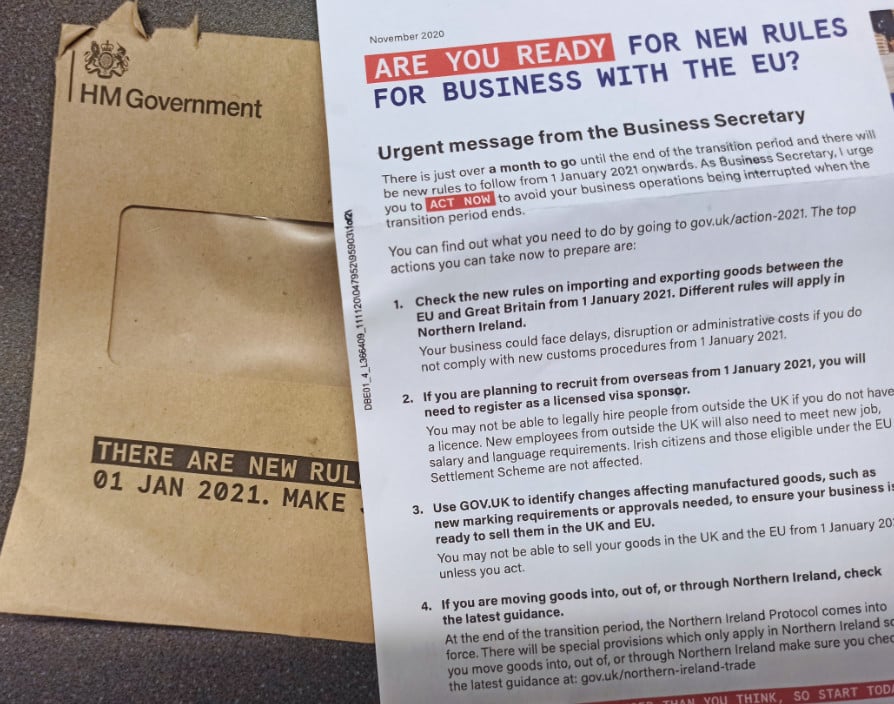According to research by the FSB, only 18% of small businesses that believe they will be negatively impacted by the end of the transition period have prepared for changes
As the UK departure from the EU draws nearer, businesses are now scrambling with contingency plans to ensure smooth sailing operations ‘ or so it seems. A new study by the Federation of Small Businesses (FSB) has found that only 18% of firms that believe they will be negatively impacted by the end of the transition period have prepared for changes.
The poll, which analysed more than 1,500 small firms, shows that fewer than one in five of those who believe they will fade harsh times by the end of the transition period has set up contingency plans for January 1. This figure doesn’t change much from last September at 21%, when firms were told to prepare for a no-deal Brexit. The lack of preparedness is believed to have been a result of coronavirus pandemic disrupting operations, linking into the uncertainty of future trade arrangements, the FSB said.
According to the study, firms cited uncertainty regarding the future relationship with the EU, with 68% believing this would be an issue. 22% said that lack of time and resources due to the economic impact of Covid-19 has held them back in this area.
However, some businesses have made preparations ‘ but not all has been smooth sailing. More than a quarter (27%) say the cost of doing so has been over £2,000. One in ten (10%) say the cost has exceeded £5,000.
Under any Brexit deal, small firms will have to meet rules of origin obligations to unlock preferential zero tariffs from 1 January. However, 58% of firms working in trading goods do not have experience of completing certificates of origin, the research found. One in five (23%) of those fearing the end of transition are stockpiling, exacerbating a squeeze on capacity at UK ports in the run-up to Christmas, the study also showed.
With only two weeks to go, small firms don’t have the time, money, or clarity they need to prepare for the end of the transition period even if they want or need to, FSB National Chairman Mike Cherry said.
More than four years on from the referendum, and after such a torrid 2020, we urgently need to see negotiators strike a pro-enterprise free trade agreement in the days ahead, one that includes an ambitious small business chapter.
Fundamentally, if the Government wants firms to make additional preparations over the coming days and into the New Year, it needs to put its money where its mouth is.
Transition vouchers – £3,000 grants that firms can use to buy the tech, training, and advice needed to navigate a new trading relationship ‘ would make a massive difference.
The fact that so few small firms that trade with Europe are familiar with rules of origin requirements is deeply concerning and highlights the need to phase in the implementation of changes across some of these more technical areas.
The clock is ticking more loudly than ever before. It’s time for negotiators on both sides to get a free trade deal done.
With the coronavirus pandemic taking over national headlines, businesses will inevitably have to prepare for another hurdle in 2021 ‘ Brexit. Businesses must come to terms with contingency plans and preparedness strategies to stay afloat during these difficult times.
“
Share via:


















































